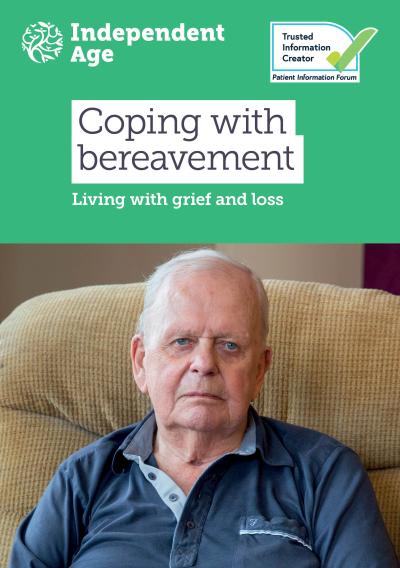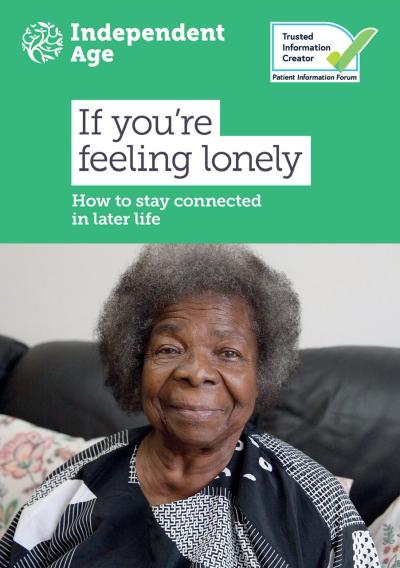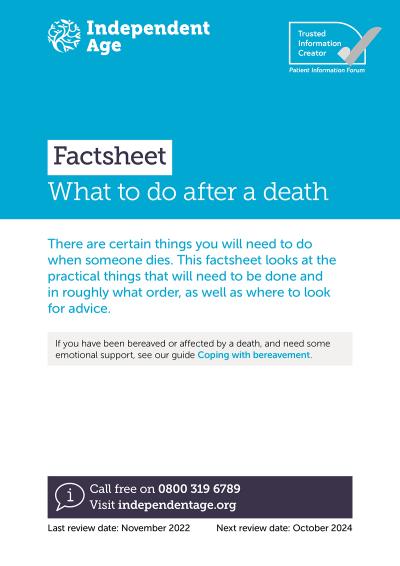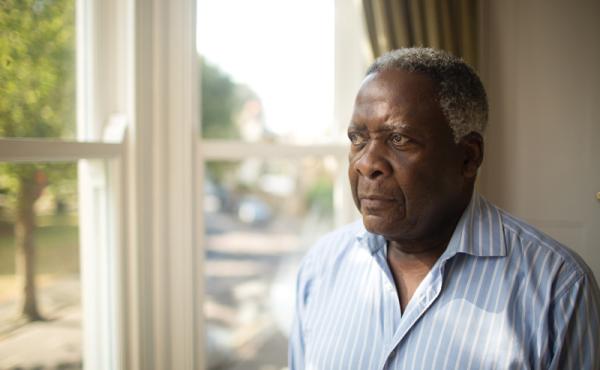Related publications

Coping with bereavement

If you're feeling lonely


When someone dies, particularly someone you were close to, it can be devastating and overwhelming. Bereavement affects us all, but everyone will cope with it differently and experience different feelings.
For about a week after my wife died I had a completely irrational fear of going to bed in case I fell asleep and didn't wake up. That would have left the children as orphans which would have been terrible. Fortunately common sense prevailed and I returned to normality. I have no idea whether other people have had similar weird thoughts. A sudden death does have odd effects.